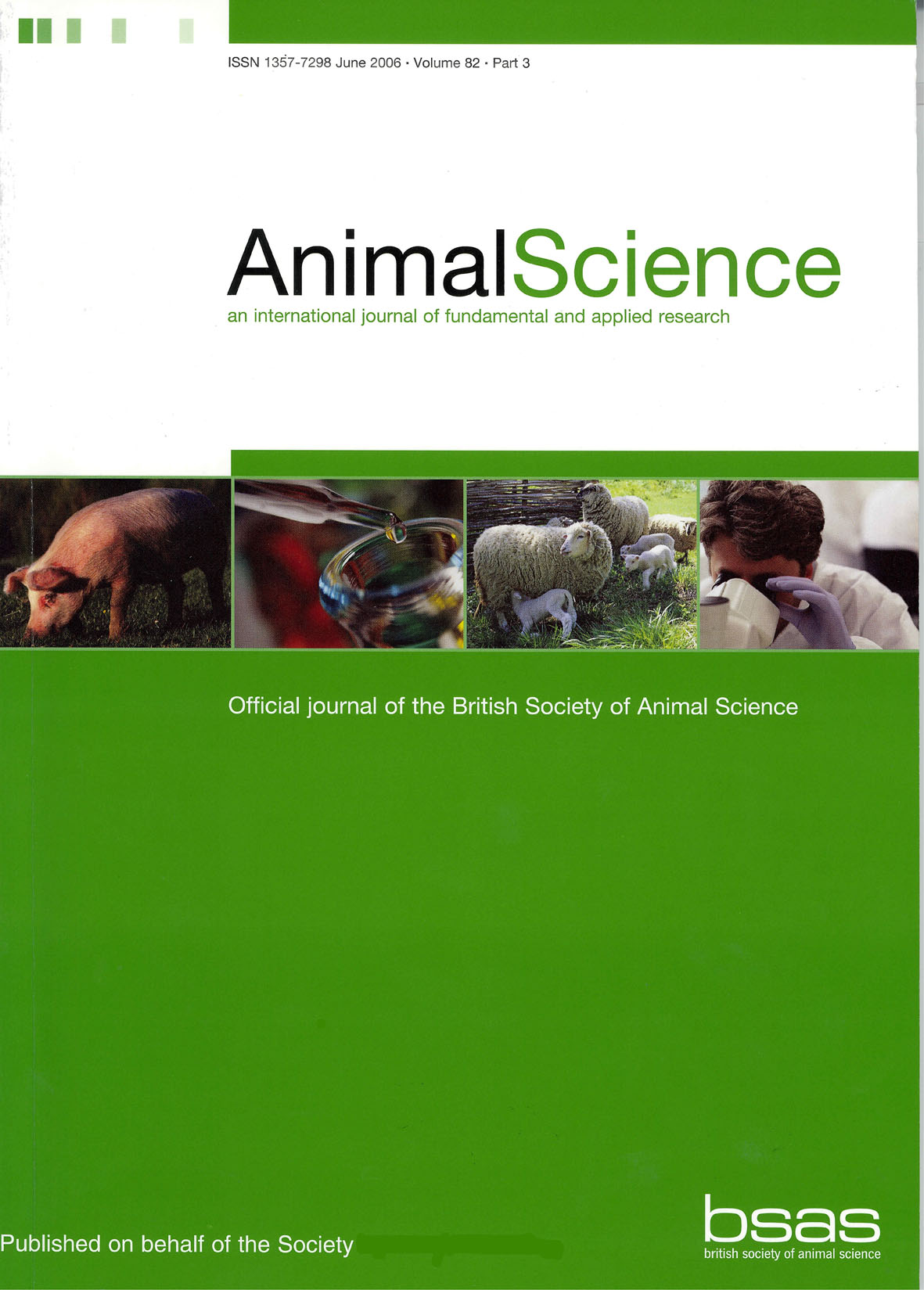Article contents
Bromocryptine is effective in reducing milk production in ewes during lactation, but has no additional effect during drying off
Published online by Cambridge University Press: 02 September 2010
Abstract
The effect of bromocryptine on milk production was investigated in 32 crossbred ewes (Flemish Milksheep х Suffolk) with one sucking lamb, during lactation and during drying off. After weaning the lambs, all ewes were hand milked twice daily for 3 days. From day 4 onwards, the ewes were divided into four groups with equal mean daily milk production. Ewes of groups A and B were hand milked twice daily during the following 9 days. Ewes of groups C and D were dried off by reducing the milking frequency. They were milked on days 5, 8 and 12. In groups B and D, bromocryptin (1 ml of 1 g/l ethanol 50%) was injected intramuscularly twice daily while control ewes (groups A and C) received 1 ml ethanol 50%. Blood samples were taken by venipuncture prior to each injection and were assayed for prolactin, growth hormone, thyrotropin and cortisol.
Bromocryptine decreased plasma prolactin levels but did not alter growth hormone or cortisol concentrations during lactation or drying off. Thyrotropin levels were elevated by bromocryptine during drying off but were unaffected during galactopoiesis.
During lactation the daily milk production remained unchanged in control ewes while in bromocryptine-treated ewes a proportional decrease of 0·5 was observed. In all ewes the decrease in milk production occurring at drying off could not be accelerated or stimulated by bromocryptine.
It is concluded that prolactin plays an important role in galactopoiesis in ewes but its role is comparatively unimportant compared with other factors during mammary involution.
Information
- Type
- Research Article
- Information
- Copyright
- Copyright © British Society of Animal Science 1995
References
- 2
- Cited by

